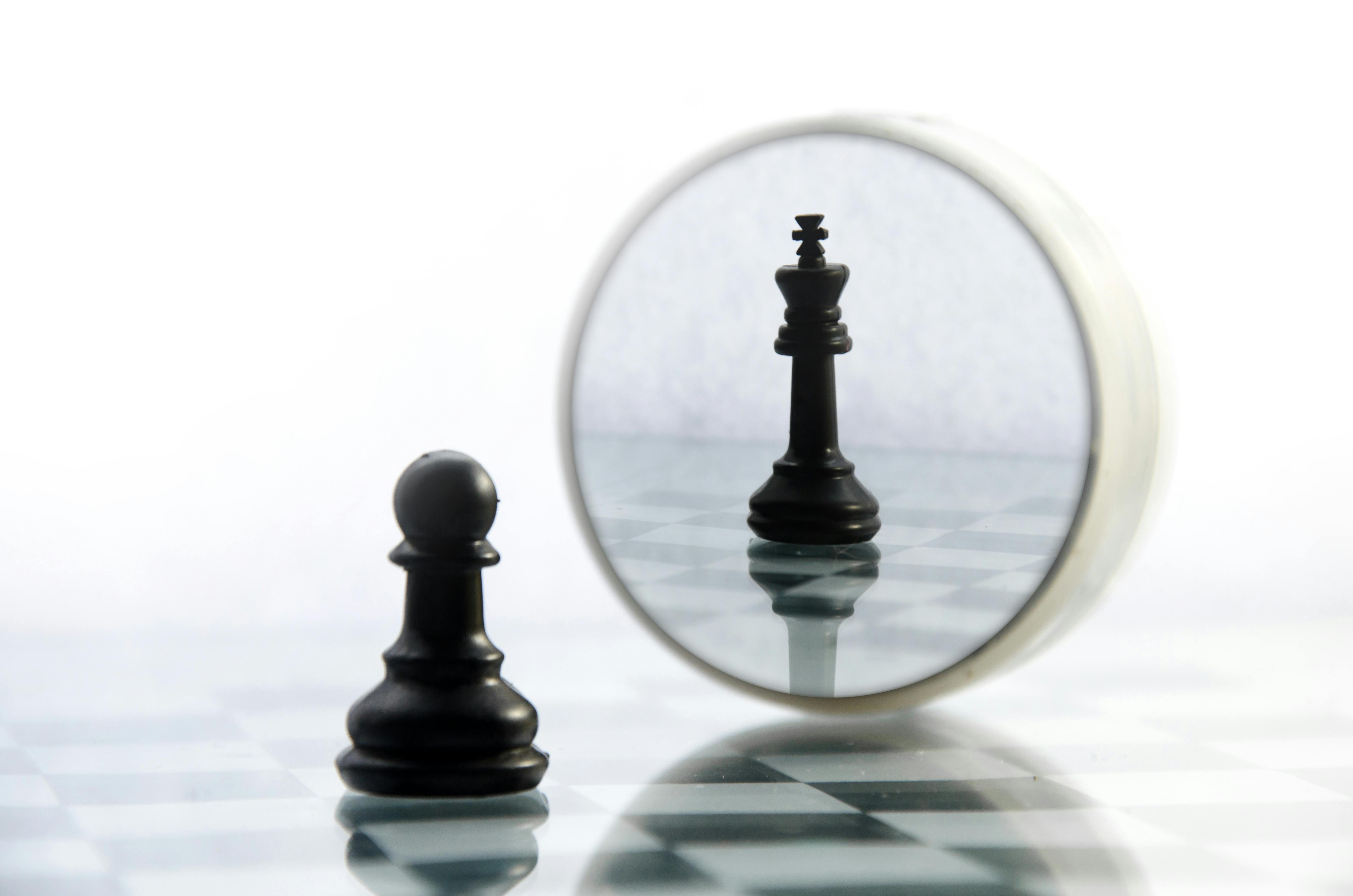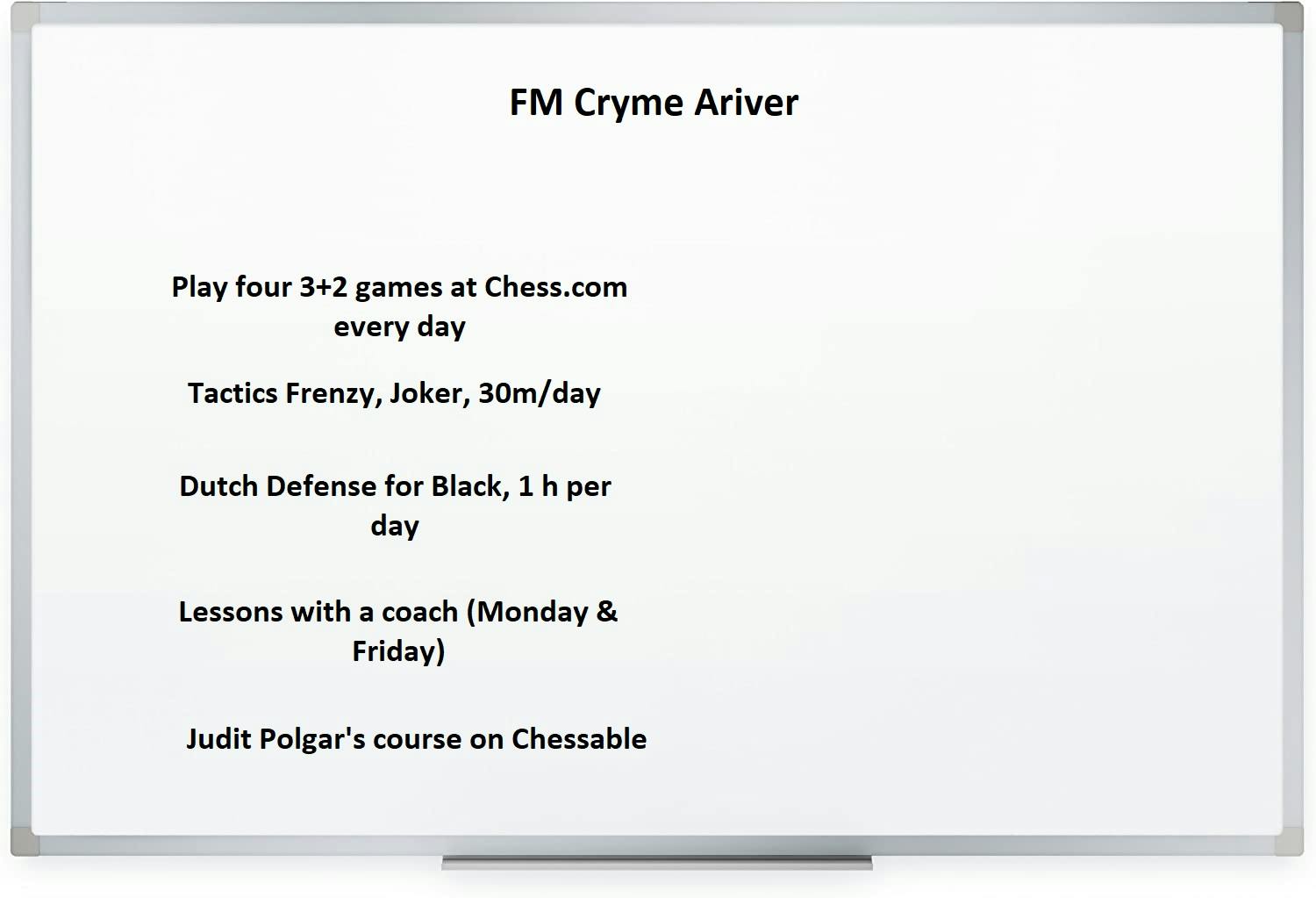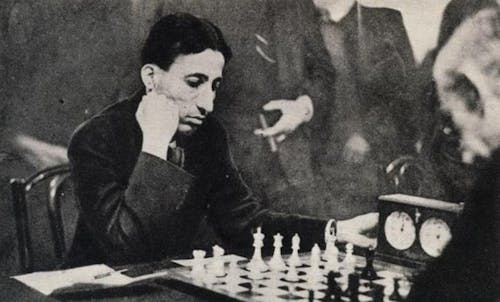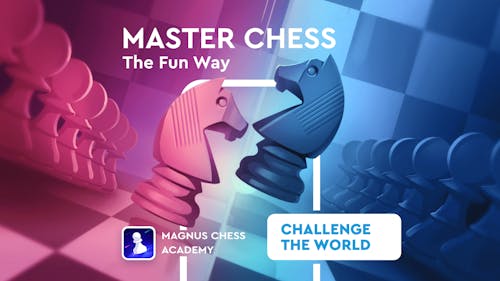Are you sure you want to delete your account?
(This will permanently delete all of your data - purchases, game scores, ratings, etc)
Change your username
Your current username is: guest
Change your account email address
Your current account email is:
Redeem your Fampay code here!
Use your Fampay code to get access to the Play Magnus Plus Membership!

The Power of Positive Affirmations in Chess
If you are climbing through the chess ranks rapidly and steadily, you probably don’t need any additional motivation since you already know what you are up to.
However, from my experience, most club players reach a plateau that is quite hard for them to surpass. They start associating themselves with a certain level (“I’m a 1500 player”, “I’m 1700”, “I’m 2000”) and have to deal with not only a skill gap but also a psychological barrier that separates them from higher-rated opponents. This is especially true for those of us who don’t have much experience facing titled opponents. In such cases, some amateurs feel as if they are doomed from the start once they get paired against a master.
Positive affirmations are a powerful tool when it comes to boosting one’s self-esteem and chess prowess. You have probably heard advice from life coaches to allocate some time for smiling at your image in the mirror and saying things such as “I love myself” or “I am a great person”. The same technique can and probably should be applied to chess.
One of the ways of setting this up is having a whiteboard in front of you where you write down your chess tasks for the week. At the top of the board, put a title, such as “FM John Smith”, filling in the desired title and your name. It is important to formulate it in the present tense. Not “I will be rated 2500 by the end of the year”. No. Write “GM Anna Smith”, as if you were already there.

The tasks are placeholders and are not meant to be viewed as legitimate suggestions on how you should train to become an FM.
At first, the process may seem childish, and you may be dismayed and disgusted by how far you are from the person you dream of being. Some people are so unsure of themselves that they wouldn’t even dare to do it since it’s hard for them to believe it could be true. However, this method is beneficial in a number of ways:
- You become what you see and think. If you and your friends keep referring to you as “amateur” or, even worse, “blunder master”, your brain will get accustomed to it. In contrast, if you wake up every day and see that you are an FM, one day, you will actually believe it. And that’s when the mental revolution starts! You will become more confident and less afraid of the opponents that used to seem formidable to you.
- By formulating your intention explicitly, you are already far ahead of most people who are too scared to set goals for themselves and, especially, to share them with others. If you keep seeing “GM Anna Smith” written on the board every day, you will know what exactly you are striving for when you study chess or sign up for an open event in the middle of nowhere where you will experience extreme heat and have to eat spicy food that will drive you nuts! And you will have no place to run if your parents or kids ask you how your chess journey is progressing. Keep your word to yourself!
- Thinking of yourself in terms of already being a titled player positively affects your study routine. You will realize that many of your chess activities have little to do with improvement and cut down on them, replacing them with practices that will elevate you even higher up the chess ranks.
Award-winning chess coach IM Pavel Lobach used to experiment with autogenous training when teaching his students. They had to listen to a tape recording with some positive affirmations. According to his experience, this technique can be quite powerful. In fact, it has been quite popular among athletes all over the world for a while already, but chess seems to be lagging in this department.
Another method that is a sibling of positive affirmations is the visualization of both your upcoming successes and your previous moments of glory. Whenever I had a debate tournament, I would envision in advance my speech and the audience’s reaction, imagining in the smallest detail how I was going to win the round and receive the trophy in the end. As a result, I kept winning one best speaker award after another. Recalling an episode when you played chess brilliantly in the past might help you regain confidence and overcome a negative trend in a current tournament.
P.S. Of course, this method alone won’t catapult you from amateur to FM or from FM to GM. Even magic has its limits, so no matter how efficient this technique is, you will still have to do quite a bit of studying and playing before your FIDE title matches the one you are aspiring to.
Do you have “World Champion” written on your whiteboard? Well, thanks to Magnus Carlsen, we know that becoming a World Champion is easy. All you have to do is to defeat the previous World Champion. To overcome the highest-rated player of all time, download the brand-new Magnus Chess Academy app and see if the champ can teach you a trick or two!

